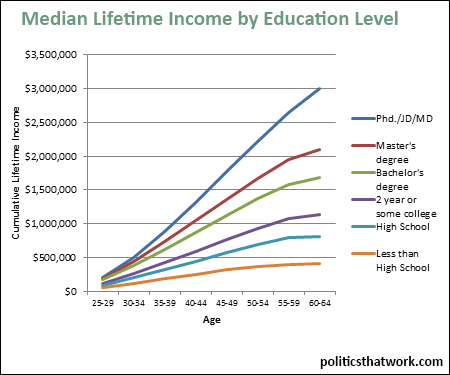The United States of America, a phrase that has historically been represented as a symbol of hope, freedom, and individuality. To be an American is to believe in diversity, individuality and the freedom to pursue a career in life centered upon your interests. For centuries since the founding of the United States, thousands have come to America seeking a new life, a place where parents could reassure and encourage their children in pursuing their passions. In fact, the belief that we can grow up to be whatever we want as long as we work hard has become a central theme in American culture. Such beliefs of freedom and opportunities can even be seen in politics, with Thomas Declaration of Independence starting off with the ever-famous phrase: “We hold these to be self-evident, that all men are created equal, that they are endowed by their Creator with certain unalienable Rights, that among these are Life, Liberty and the pursuit of Happiness.” Interestingly, even the term America, as coined by Amerigo Vespucci, had its original meaning derived from the concept of “A New World”. The connotation and history of America are immense, and as with all Americans, we embody and adore the idea of equality, that given an equal playing field, hard work triumphs all our in typical rags to riches story. This in itself is embodied by capitalism; an economic system where private ownership and competition ensures constant evolution and successful innovation. As amazing as capitalism is portrayed, however, there are often downsides associated with this system that gets often overlooked.

Ironically, perhaps one of the biggest controversies of capitalism is the inequality inherent to the system. By definition, capitalism is acknowledged by Merriam Webster as “an economic system characterized by private or corporate ownership of capital goods, by investments that are determined by private decision, and by prices, production, and the distribution of goods that are determined mainly by competition in a free market.” As such, it is not surprising that a crucial part of inequality in capitalism lay in the individual differences among companies and industries. According to journal articles from Evonomics: The Evolution of Economics, however, the concept of individual differences while small can provide a multiplicative effect on society, accumulating and exaggerating even the most minute of differences. One considerable difference among individuals is the social class one is innately born into. Logically, those born into wealth and money will have more opportunities, connections and heightened ability to succeed. This disconnect in equality of wealth can be seen most prominently in the form of college education. Historically, the ability to go to college has had a tremendous impact on future success. In fact, a New York Times article journalist Eduardo Porter succinctly summed up that “This pattern of stagnant mobility and rising inequality of education adds up to a dumbfounding paradox. American workers with a college degree are paid 74 percent more than those with only a high school degree, on average, nearly the biggest premium in the O.E.C.D”. In a modern society where more and more higher-end jobs require higher skill caps, the notion of education has become increasingly vital as most if not all professional careers have some sort of requirement for knowledge-intensive training. At the same time, higher emphasis on education has drastically increased college competitivity around the world. This competitivity has gone to a point where specialized organizations such as Y2 academy and C2 education dedicate their goal solely on improving student standardized test scores and personalized essays as a way to optimize the college admission process. Unsurprisingly, all of these organizations, while helpful, require a hefty sum ranging several thousands of dollars further separating those of low income with high income. This in itself isn’t even accounting for the inflation of college tuition that many are forced to pay semester by semester. The high monetary cost before, during and even after college has essentially ensured those with low income to stay in low income due to their lack of opportunities in pursuing higher end education, which in turn reduce their ability to get a high paying job. Fascinatingly, this disconnect in wealth and the positive feedback loop was illustrated blatantly through Washington post as they reportedly claimed that the richest 1 percent of the American population currently own approximately 90 percent of America’s total material wealth.
Despite such problems, however, Capitalism is arguably not without its merits. The natural competition of companies and businesses foster tremendous incentives for individuals to work harder, innovate and improve as to outcompete their rivals. Likewise, consumers are able to choose from a variety of products, thus playing a pivotal role in determining the price a good is likely to be set at. The result of these consumer-producer relationships inevitably serves to promote economic growth and efficiency. In the end, the debate of whether or not capitalism is an adequate system lay in what we as a population value. Are the technological advancements we get from capitalism worth the inherent inequality that comes from our differences? If we decide that Capitalism is not a good system, then what alternative solutions are there?
Sources:
https://www.economicshelp.org/blog/5002/economics/pros-and-cons-of-capitalism/
https://www.washingtonpost.com/news/wonk/wp/2017/12/06/the-richest-1-percent-now-owns-more-of-the-countrys-wealth-than-at-any-time-in-the-past-50-years/?utm_term=.dd3d152ee6e8
https://www.theatlantic.com/education/archive/2014/04/is-college-really-harder-to-get-into-than-it-used-to-be/360114/
https://www.thebalance.com/capitalism-characteristics-examples-pros-cons-3305588
https://www.loc.gov/wiseguide/aug03/america.html
American Capitalism Means Individualism and Freedom, Not Government Paternalism
https://www.merriam-webster.com/dictionary/capitalism
